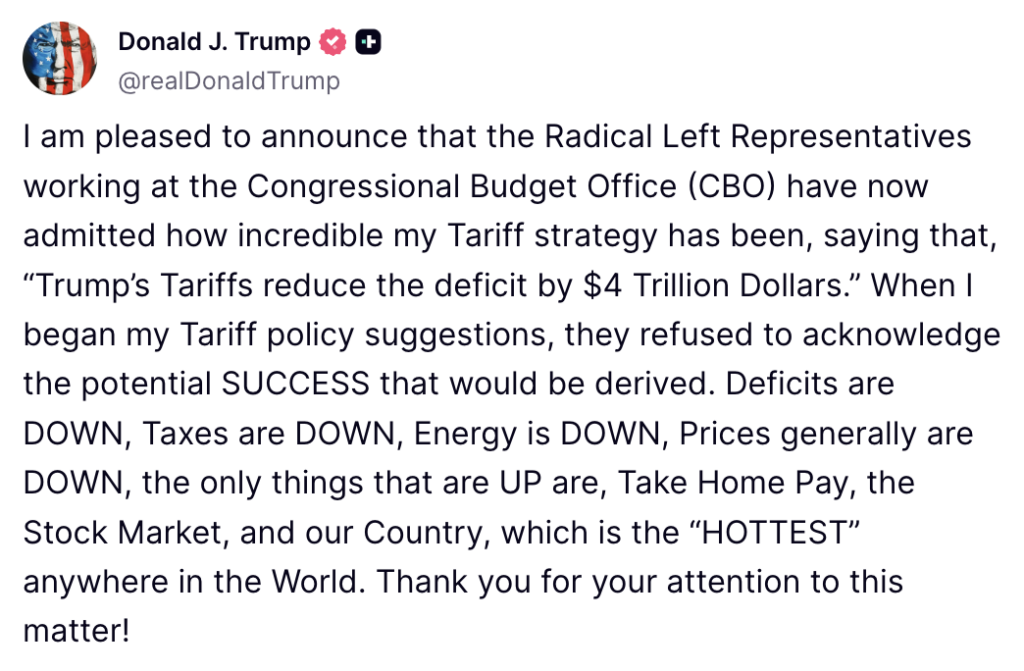
On Friday, President Donald Trump celebrated a Congressional Budget Office report projecting that his sweeping tariffs will reduce U.S. deficits by $4 trillion over the next decade, even as analysts caution the levies could weigh on economic growth and face legal challenges.
CBO Projects Historic Deficit Reduction From Tariff Revenue
The nonpartisan CBO said tariffs imposed this year are expected to reduce primary deficits by $3.3 trillion through 2035, with an additional $700 billion in savings from lower interest costs, bringing the total reduction to $4 trillion, reported the Financial Times.
The agency's new estimate is a third higher than projections made earlier this year, with 2025 tariff revenues forecast to reach $200 billion, compared with about $80 billion annually over the past five years.
The president highlighted the report, stating that it proved "Trump was right" and asserting that tariff revenues would "reduce the deficit by numbers far greater than they ever expected — unheard of," the report said.
He also took to Truth Social and said, "Deficits are DOWN, Taxes are DOWN, Energy is DOWN, Prices generally are DOWN. The only things that are UP are Take Home Pay, the Stock Market, and our Country, which is the ‘HOTTEST' anywhere in the World."

Tariffs Offset Impact Of Spending Bill, Ratings Agencies Respond
The CBO report indicates tariff revenue could help offset the fiscal strain from Trump's $3.8 trillion "One Big Beautiful Bill Act," which passed the House in May but faces Senate hurdles.
Ratings agencies S&P Global and Fitch both cited the surge in tariff revenue as a key factor in holding their ratings on U.S. debt steady, the report added.
Lisa Schineller, S&P's director of sovereign ratings, said tariffs could "potentially offset some fiscal deterioration," though she underscored that uncertainties remain.
Fitch echoed those concerns, warning that large deficits could persist as spending rises again in 2026 and 2027.
Economists Caution On Long-Term Growth Risks
While Trump celebrated the report, economists warned of potential downsides. Morningstar's Thomas Torgerson said tariff revenues may provide "a temporary fillip," but could decline over time as trade shifts away from the U.S.
The CBO also noted its forecasts carry "significant uncertainty," citing unpredictable global trade responses and possible legal rulings.
The U.S. Court of Appeals is currently reviewing Trump's use of emergency powers to impose tariffs.
Tariff Policy Becomes 2025 Political Flashpoint
Trump has defended tariffs as central to his strategy of economic nationalism and reshoring manufacturing, even predicting a "Great Depression" if courts overturn them.
Treasury Secretary Scott Bessent previously said that tariff revenues would "substantially" exceed prior assumptions and help pay down U.S. debt.
Read Next:
Disclaimer: This content was partially produced with the help of AI tools and was reviewed and published by Benzinga editors.
Image via Shutterstock







